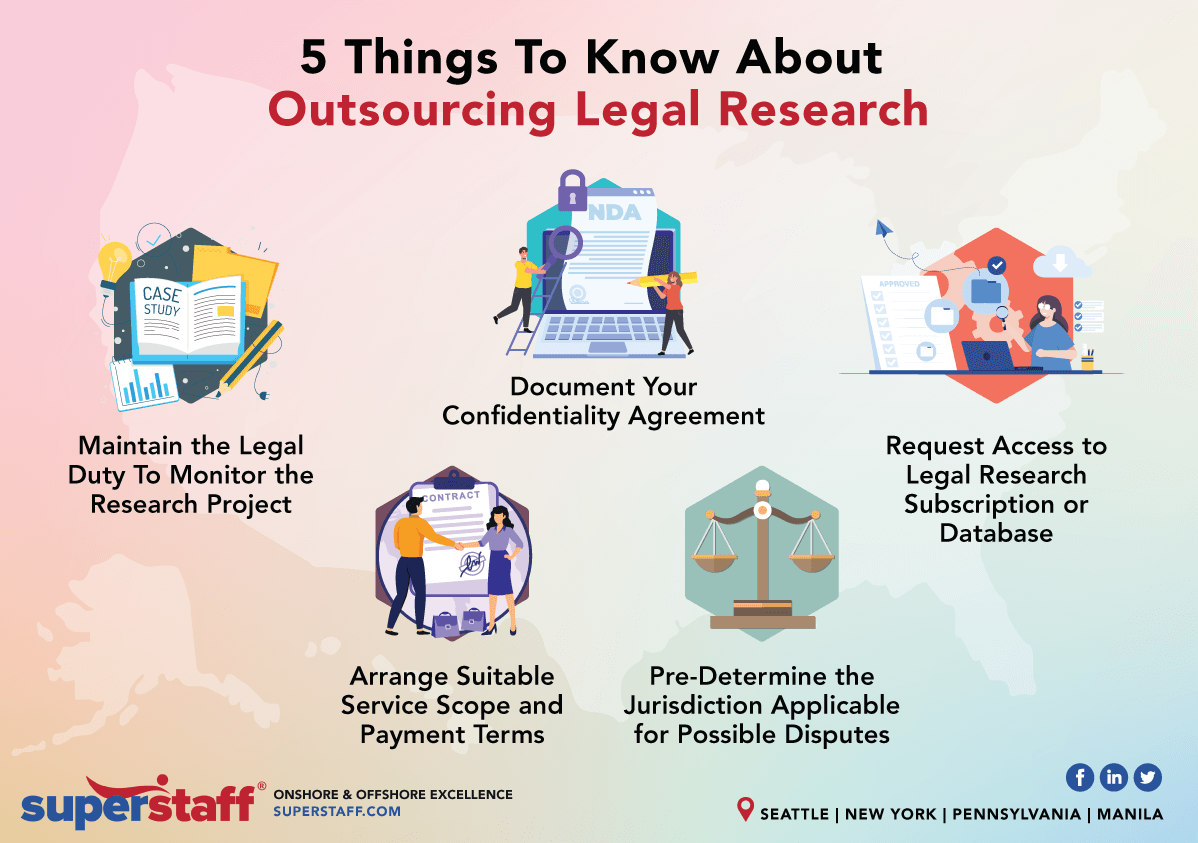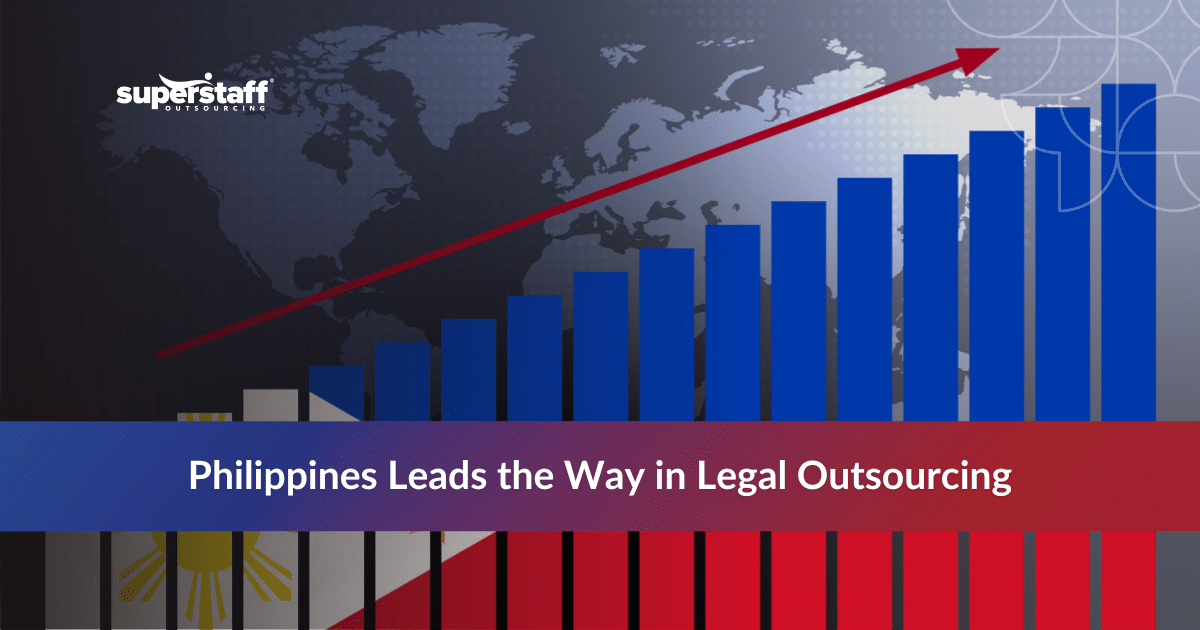
A lawyer’s average workday is anything but glamorous contrary to what many movies and TV shows portray. Lawyers work hard and put about 50-80 hours a week, of which a majority involve performing due diligence, such as legal research, to ensure excellent output.
With the pressure to keep up with the evolving client expectations, many law firms and independent lawyers often categorize legal research, writing, and other crucial administrative tasks as non-billable hours.
On average, lawyers spend 69% of a day’s work on activities they can’t bill their clients. Non-billable hours hold a lot of weight on why outsourcing legal research is significantly more efficient than hiring full-time associates for a firm’s research tasks.
Working with an external provider makes managing finances easier as you pay only for the services rendered. Most importantly, by delegating time-consuming functions to an external provider, you and your team can focus on tasks that have a direct impact on your case at hand.
If you are considering outsourcing legal research, we want to help you ensure the best possible outcome. Below are considerations when outsourcing legal research.
5 Things You Need To Know When Outsourcing Legal Research
#1: You Maintain the Responsibility To Oversee Your Legal Research Outsourcing Provider
When you outsource legal research services, you and the legal research provider enter a subcontractor relationship in which you maintain oversight and supervisory responsibilities. Your outsourcing partner will also not become your clients’ counsel of record. Under ethical rules, a provider who is not licensed in your jurisdiction is considered a non-lawyer.
Think of your relationship with your legal research service provider as something similar to what you have with your associates, wherein you maintain the legal duty to monitor their work. It is important to be diligent in choosing a provider to outsource legal research. While hiring a provider licensed in your jurisdiction is not necessary, choosing a reliable and reputable one is.
#2: You Should Document Your Confidentiality Agreement With Your Legal Research Service Provider
You are not obligated to disclose to your client that you are subcontracting legal research. However, it is crucial to keep a written document stipulating your confidentiality agreement with your provider. Any external engagement poses certain risks, and a written agreement will serve as protection for you and your partner.
The agreement should indicate that your provider must maintain client confidentiality as if they have a direct attorney-client relationship with your clients. If you decide to disclose your engagement with a legal research service company to your client, you can position the agreement as a selling point. It speaks of your commitment to protecting your clients’ data and privacy.
#3: You Should Be Able To Access Your Service Provider’s Legal Research Subscription or Materials Database
One significant benefit of outsourcing legal research services is accessing your provider’s resources. This eliminates the need to spend on expensive subscriptions and other resources.
Legal research outsourcing companies invest in various tools and software relevant to their service specialties. Your legal research service provider should allow you access to their subscriptions or law material libraries without additional costs. Of course, unexpected circumstances may always arise, so it is best to include a clause about extraordinary circumstances and other exceptions in your written agreement.

#4: You Can Arrange Suitable Service Scope and Payment Terms With Your Legal Research Outsourcing Partner
Another benefit of outsourcing legal research services is getting customized solutions that suit your requirements. This kind of arrangement fits the nature of the work embedded in the legal profession. Depending on the case you are working on, you may choose to outsource some of the processes or the entire process of legal research, including legal writing. In other words, you may opt to enter into a broad or limited agreement with the legal research service company.
If you enter into a broad agreement, you and your provider must establish a clearly defined and documented project scope before finalizing the outsourcing contract. Some of the primary considerations you need to discuss are:
- The number of outputs you require within a specific period
- How you will measure the quality of work
- How many revisions will be allowed, especially for legal writing
It is also important to establish payment terms with your provider at the outset. You may apply the same principle you use when deciding to bill your clients either a fixed or time-based fee. You and your provider may agree on a per-hour payment term or a flat rate for drafting a motion or completing other tasks.
Some outsourcing providers may include coverage of advance expenses as one of the benefits of outsourcing their legal research services. But if you prefer otherwise, be sure to put into writing how disbursements will be settled.
#5: You and the Legal Research Service Company Should Pre-Determine the Jurisdiction Law To Apply for Disputes
Setting forth the choice of law and forum to apply in a dispute is an excellent way to mitigate any disagreement. It is typical for legal research outsourcing providers to be based offshore or outside the client’s location.
Thus, different laws may apply to the same scenarios. It is crucial to agree early on which judicial authority will be exercised in case you and your provider disagree, whether regarding billing, appeals, or other concerns, along the way.
Why Is Legal Research Important?
Performing legal research is almost synonymous with being a lawyer. However, you do not necessarily have to do all the painstaking and time-consuming processes yourself. The goal for performing legal research is not necessarily to find an answer to specific questions but to gather relevant pieces of information that you can analyze to accomplish the following:
- Gain an in-depth understanding of certain laws, doctrines, or statutes by breaking down the components.
- Substantiate legal position or argument by locating authorities in legal subjects.
- Aid in teaching students and development of teaching materials.
- Present an argument or view by analyzing different case elements and comparing or connecting them with existing statutes and doctrines.
Legal Outsourcing in the Philippines
Many U.S. companies have been outsourcing numerous business processes in the Philippines for more than four decades. As the demand for legal services continues to surge in the U.S. and other western countries, more firms find outsourcing various legal process functions to the Philippines a competitive business strategy.
Here are some of the reasons why the Philippines is one of the countries leading the offshore LPO market:
- As of 2019, there were about 40,000 attorneys in the country.
- Legal education in the Philippines has been firmly established since 1734.
- Lawyers in the Philippines must take at least 36 hours of continuing education every three years.
- The Philippines’ legal market comprises new and long-established firms widely respected by local and international clients.
- The country’s legal framework is adapting steadily to global digitization and modernization developments.
- About 7,699 individuals take the Philippine Bar Exam annually.
- The Philippine legal system shares significant similarities with that of the United States. In fact, the Philippine Constitution is patterned after that of the U.S.
- The Philippines is home to top colleges and universities, 15 of which are recognized as among the best institutions in Asia.
Reach Out to a Reputable LPO Partner
With a location in the prime business district of the Philippines, SuperStaff has access to a global pool of highly qualified professionals who can perform a range of legal outsourcing solutions. We handpick highly qualified talents and equip them with advanced training and tools to deliver excellent paralegal, data entry, contract drafting, and other legal outsourcing services. Reach out to us today for more information.






